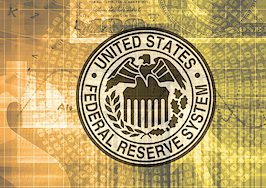- Liquidity gets interesting when investors are trying to buy or sell large amounts of something unusual.
- Mortgages are weird because the makers of the IOUs and the collateral are unique -- no two the same.
- It may help readers seeing “drying up” scare stories to understand just how immense these markets are, and hence how hard it is to dry them into a state of motionless adobe.
All financial markets are, from time to time, victims of media stories saying that liquidity has dried up. Or the obverse of the coin: sellers are overwhelming the supply of buyers.
One example: For decades, scaremongers have described the disaster which would follow liquidation of the hoard of Treasurys held by Japan or China, but in the currency instabilities of the last year, a couple of trillion-worth have been sold to defend overseas currencies from an overstrong dollar — with no noticeable harm here at all.
“Liquidity” in its most useful sense means the ability for markets to accommodate the sale or purchase of financial objects in quantity without dramatic changes in price. That’s exactly what has happened with China’s sales of U.S. Treasurys.
“Liquidity” in its most broad sense — all of the cash in the world — has no meaning.
When it gets interesting
Liquidity gets interesting when investors are trying to buy or sell large amounts of something unusual, or in one of the generational lock-ups of markets in a general panic. In the 2007-2008 run-in to the Great Recession, we saw both phenomena: U.S. mortgages are among the most unusual securities in markets, and markets locked up as not since the Depression.

John Kasawa / Shutterstock.com
Mortgages are weird because the makers of the IOUs and the collateral are unique — no two the same. We securitize them to make them uniform and tradeable (that’s the actual purpose of uniform rules for underwriting).
However, during the subprime bubble we manufactured two trillion dollars worth of trash, and when that market locked up, it locked up all mortgage trading. U.S. Agency loans (Fannie, Freddie, FHA, VA) — by the summer of 2008 all government-guaranteed nevertheless rose in yield (cost) from a normal spread of 1.80 percent above 10-year Treasurys to 3.50 percent or more. As the U.S. economy fell deeper into recession, mortgage rates rose.
That was the ultimate “no liquidity” of our lifetimes. The initial intent of the Fed’s quantitative easing was focused on mortgages to “liquefy” that market, and it worked quickly and to perfection.
Markets are immense — and hard to dry out
It may help readers seeing “drying up” scare stories to understand just how immense these markets are, and hence how hard it is to dry them into a state of motionless adobe.
Total U.S. home mortgages outstanding: just shy of $10 trillion — smaller than 10 years ago at bubble burst because we alone in the world have written off our bad stuff. That’s a lot of money.
But for perspective, here are the sizes of comparable markets: commercial mortgages are only $2.5 trillion. The entire municipal bond market is only $3.7 trillion. But corporate bonds: $12 trillion. Total consumer debt: a mere $3.5 trillion. US Treasurys in the market: a little less than $14 trillion. Total assets of US banks (which include chunks of the above) not quite $12 trillion.
Liquidity is liquid. If the market for any of these assets tightens, then its yields rise, which pulls cash — liquidity — from other markets. Markets quickly (every day, every second) reallocate cash to markets with the highest yield relative to risk.
Someday, of course, all hell will break loose again, and markets will struggle to function, but they tend to heal themselves, and when they don’t … that’s what the Fed is for.
When you see drying-up stories, take them with a spoonful of salt.
Lou Barnes is a mortgage broker based in Boulder, Colorado. He can be reached at lbarnes@pmglending.com.









